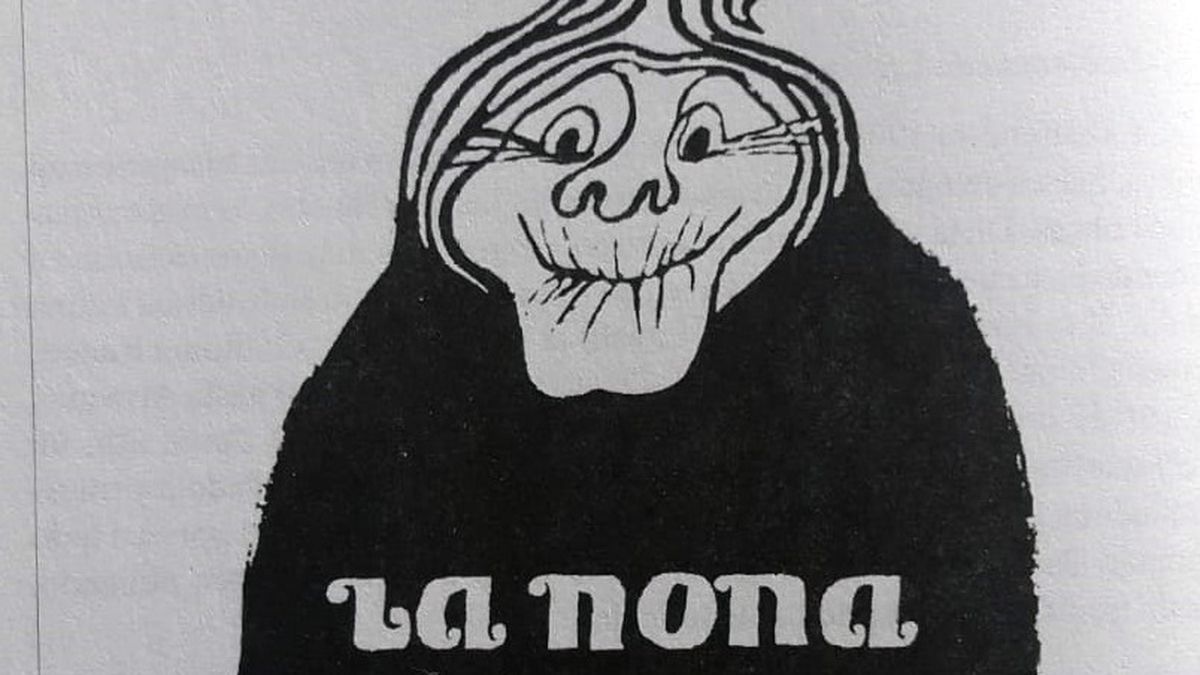“For me, in a moment, a way of writing ended. A world is exhausted. This was related to a country that was leaving frondizismo and entering that official calm of the Illia stage, confusing and never so calm. Then comes the Onganía dictatorship, the resurgence of guerrilla movements, violence and everything that comes after. For me, that is combined with an aesthetic that no longer served me. One is always fed by reality. A country that existed when I wrote my first works is nothing like the later oneto that of the 70s, and although an aesthetic cannot change, in my case I feel that it was modified by the reality that hurt me.
The realism
“I always maintained, when our generation emerged and had a warm and at times quite exaggerated reception (later came a kind of counteroffensive), that Realism must always be conceptual and not formal. That is to say, when I defined myself as a realist, or when we defined some authors as realists, it was because of the need to insert ourselves into our reality, which did not mean that we should limit ourselves to a realistic form, or a naturalistic theater where things they had to pass photographically“
“But as in any debate, the positions are very divided and there came a time when it seemed that we defended naturalism exclusively and that on the opposite side were those who defended the theater from cruelty, absurdity, etc. I am still a realist writer speaking of realism conceptually. I have always been interested, and am interested, in writing a type of Argentine theater”.
“A theater based on language, characters, situations. Because I can’t write anything else that doesn’t refer to my environment. But I have realized that if I stay with that simple description I will only be able to create a minor, elementary theater. We must assimilate the forms of modern theater, develop them within our theme, within our way of seeing reality. I think this is true in ‘La nona’”.
“I had the grotesque inside my skin. It is a genre that I always liked and I think I had not tried it before because it had not completed the necessary stage of assimilation as I wanted.. For me, the difference between the grotesque and another genre of theater, which I have cultivated until now, is that the author has a dramatic vision of things and the humor comes from hyperrealistic situations but always from a situation that unfolds from the comic to the dramatic within reality.”
individualism
“More than frustrated beings, ‘There is no need to cry’ try to people who are victims of exalted individualism. Of those poor people who live destroyed by what could have been if they had had a better economic situation, destroyed by a society that pushes them to impoverishment.. That’s when the little passions, the little needs, appear. Man appears driven by his primary needs, with great fantasies focused on economic achievements. And situations have to come from outside, magically, like in the lottery. I think that this is very much of our country, where a guy at 25 has a kiosk and at 40 wants to have a company; where a butcher wants his son to be a doctor or businessman but, fundamentally, for him to have money, at any price. Curiously, in a country where it is becoming more and more difficult to have money, but where one always has the feeling that at any moment one passes to the front. As if each one had a personal lottery within them.”
“Many times I have told this anecdote, which is real. One time I took a taxi, and it seems that the driver was very loaded because he needed to talk, and he told me vehemently: ‘Do you think so? Twelve hours sitting here, and look what I collect, a pittance. “It can’t continue like this.” At that moment the traffic light turned red and the taxi stopped in front of a small square. Then the tack boy lit up and said to me: ‘Can you imagine what kind of business it would be to put a carousel in this square? It’s to be filled with gold’: And from there his attitude totally changed, because he remembered that he had a friend in the Municipality whom he would call tomorrow to manage the authorization. It seems exaggerated but it is real. That’s how we are. These are the characters of ‘There is no need to cry’.”
Policy
“I think that Every spectacle is political because it contains a conception of reality. Archaeological theater seems silly to me, it doesn’t interest me. To see ‘Macbeth’ as it was done in Shakespeare’s time, I stay home. I want to see it through a current perspective in the style, in the language of today. The theater is a place to see yourself and, fundamentally, to compare yourself with today. As a reader it is different, but as a viewer the setting must be current. What’s the point if not?”
“We cannot make Chekhov with the Russians’ images but with our own. Thus, theater is always political. It has to be linked to its time and space. Insert the practice in a specific context. This is not a rule. It’s not about a missing person being included in ‘Macbeth’. No. I want a Macbeth with whom I can identify, an Argentine look at Macbeth. A few years ago, for example, Carlos Somigliana put on a very interesting ‘Macberth’ that referred to the crimes and violence of the Trial.”
Art and the market
“An author must investigate his personal images, beyond subsequent influences. From that investigation a unique style is born; Then he must metaphorize reality, turn it into a narrative. This is how you reach the maturity of the craft, which does not mean merely creating good dialogues. The job is self-knowledge, the search, the permanent fight, also against the environment. “Our society, a little due to economic hardship and a little because of the market itself, is highly polluting.”
“For an author this can mean falling into commercial seduction. We must not forget that here, with or without crisis, you can make a lot of money with theater. If you have an effective recipe and you know how to use it, you can get richer. That’s when the soul is given: because the market will always ask for the repetition of a formula and does not tolerate innovation.”
“The worst enemy that the playwright has is the novel. Working with the actor and the stage facilitates the transition to the theater. It is a form of literature made to be performed on stage, not to be read. A playwright must take care of the narrative and approach poetry. “Theatre is not only a text but also the images, the light, the scenography: it is a sum of elements destined for poetic synthesis.”
Popular theater and beauty
“We must not deceive ourselves: When we talk about popular theater we exaggerate. The people who go to the theater are middle class, with a certain cultural level. People who consume books and shows. When we say popular theater we do not think of the working class, of course. If the public and I agree, we go hand in hand and I’m happy. But I don’t try to subordinate myself to that experience. I try to make that spectator who applauds me be questioning.. I try to provoke him. It is not for me to say if I achieve it.”
“I want to beautify the viewer. Whoever is prepared to receive artistic stimulation becomes more beautiful than him. Improvement. Beautifying means making people think. There are works that, due to their theme, are not political or social and, instead, produce beauty. Art is always beautiful. Even Goya is beautiful. “Beauty means illumination of reality.”
own works
“I don’t like any of my works, I like some sections of each of them. That is a peculiarity of the theater. It’s built around two or three really good moments, and the rest is just filler. You have to put together that filling to aim for the key moment. And I don’t like that filling. And I envy the synthesis, the concision of the poets. “They never have too many words.”
”For example, in ‘La nona’ there is a scene that I really like. The moment when Carmelo unleashes his drama and Nona takes advantage of the noise to order food and Carmelo, mechanically, serves her. To get to that scene there was a preparation, a presentation of the characters and the circumstances, which I call filling. It also happens in ‘Los compadritos’ with the scene in which the Nazi commander must recruit the compadrito for the cause.”
“I am irregular at writing. I can’t systematize my work. I never practiced what Hemingway did, writing four hours a day even though he had nothing to say. I have a hard time getting started, but when I start, I work hard, even if it’s intermittently. I admit that I always tend to slack off a little. To counteract that, I set a trap for myself: I create obligations for myself. I contact a director to show him what I have done, and he begins to rush me by telling me that it must be delivered. Because otherwise I would do what my friend Somigliana says: ‘Don’t do today what you can do tomorrow, because tomorrow maybe you won’t have to do it.’
Source: Ambito
I am an author and journalist who has worked in the entertainment industry for over a decade. I currently work as a news editor at a major news website, and my focus is on covering the latest trends in entertainment. I also write occasional pieces for other outlets, and have authored two books about the entertainment industry.




